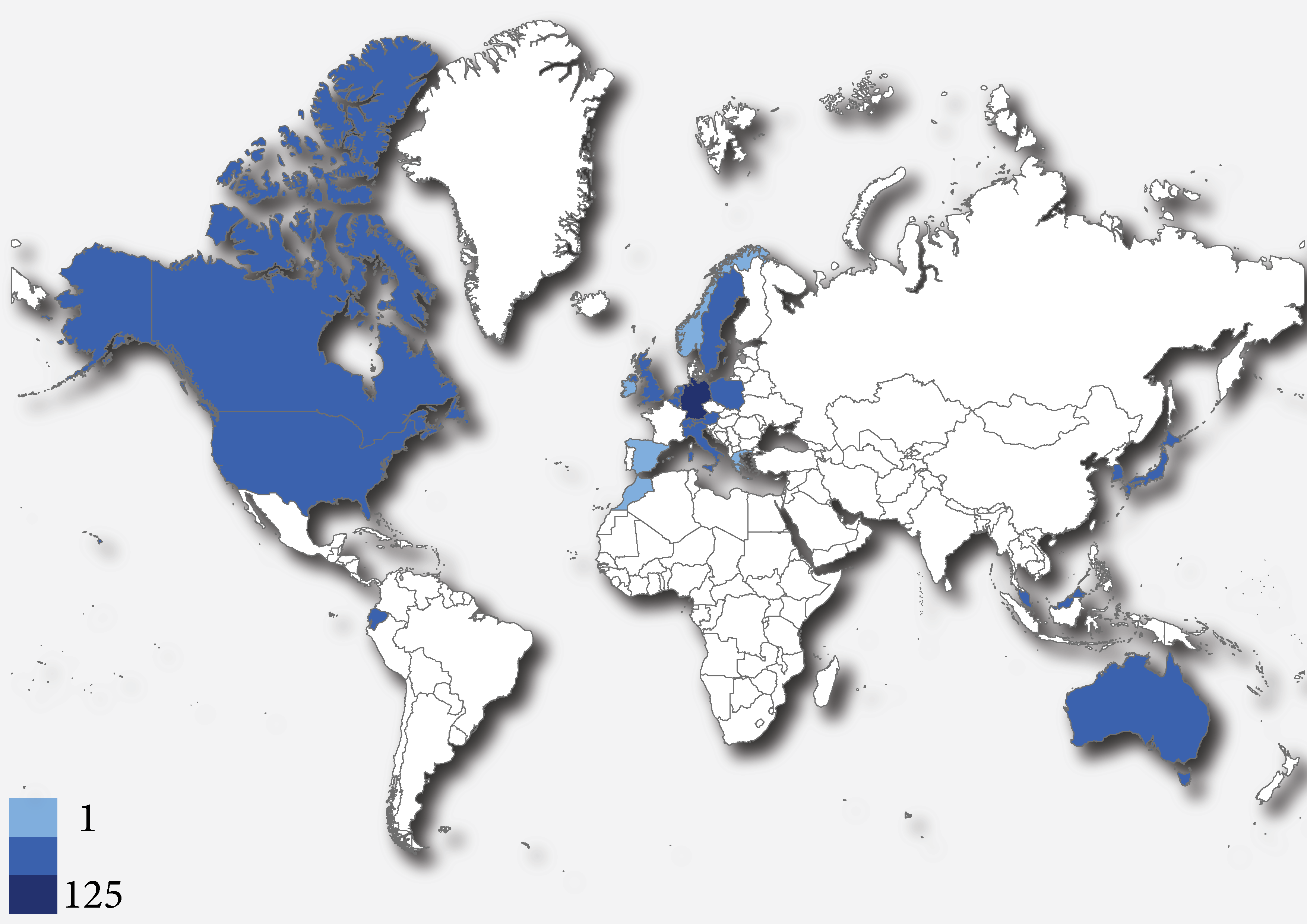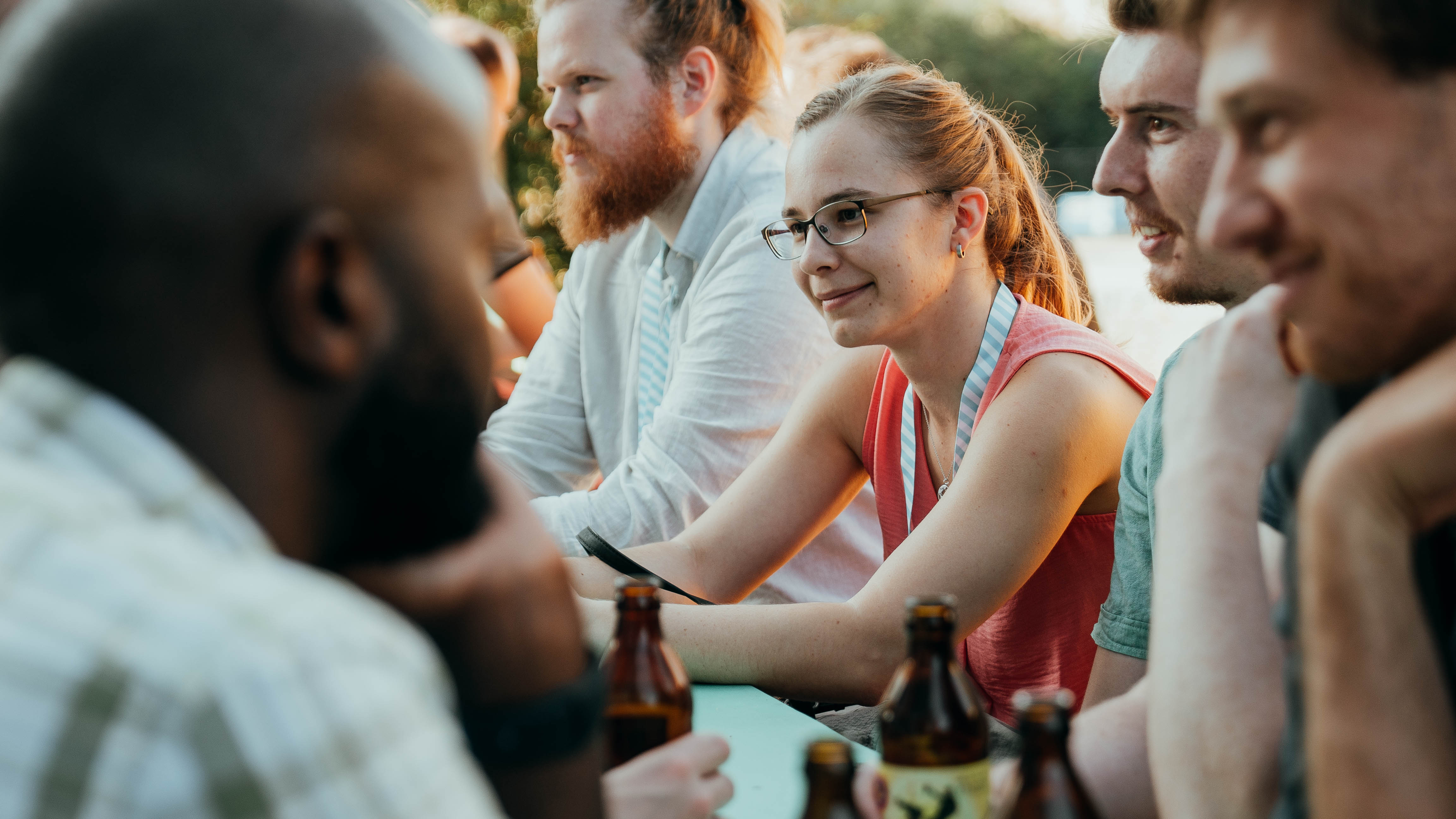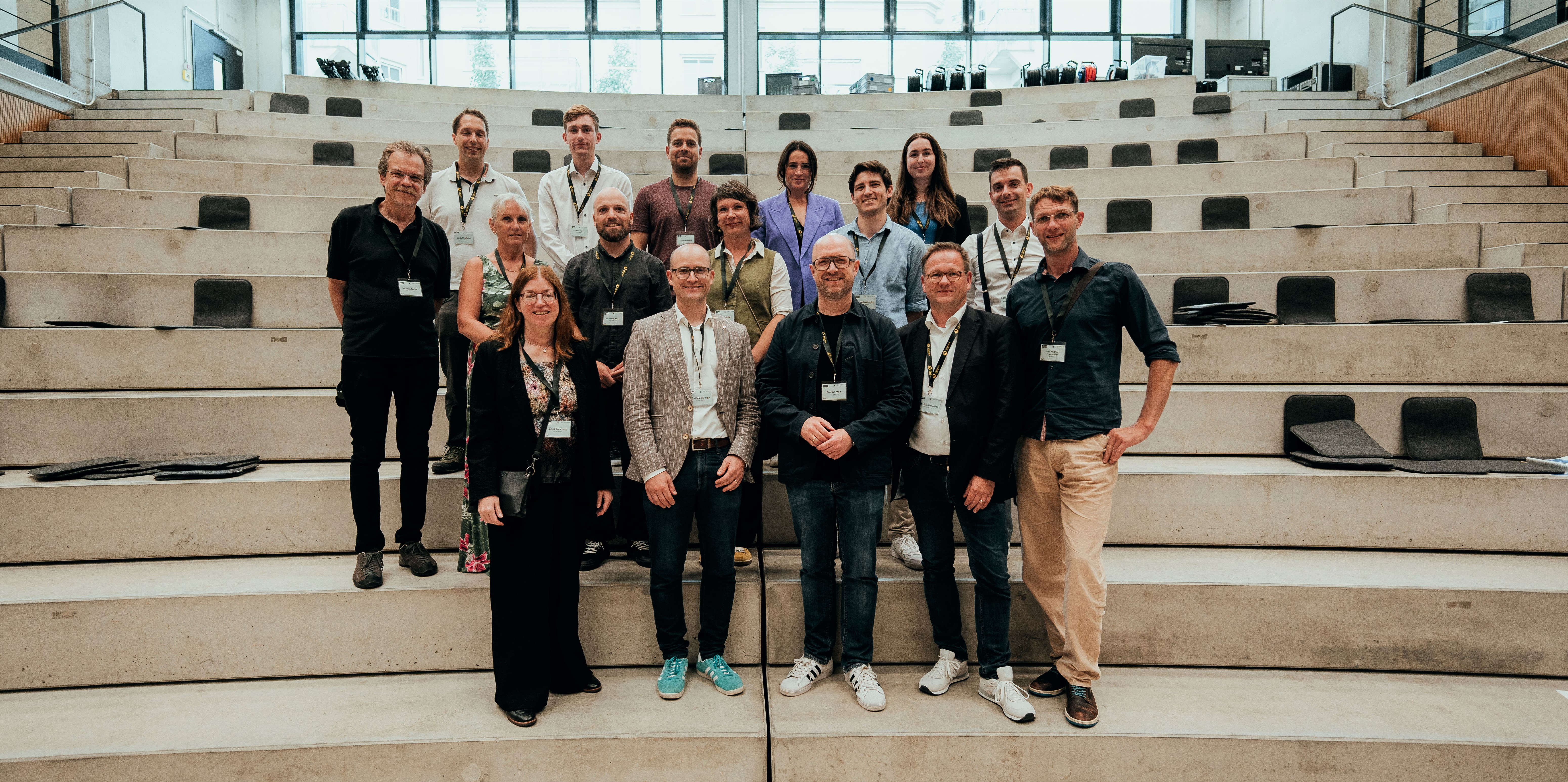International Forum on Urban Digital Twins
A review of the International Forum on Urban Digital Twins at the Munich Urban Colab in September 2023: Everything concerning the topic of Urban Digital Twins.
One keynote, seven presentations, a Barcamp and more
That was the International Forum on Urban Digital Twins held on September 12, 2023 at the Munich Urban Colab. It was part of the 3DGeoInfo conference from September 12 to 14. The event was organized by the City of Munich in cooperation with the Technical University of Munich.
Event at the Munich Urban Colab

“Lots of people talk about the potential of Digital Twins, but not many talk about the challenges.” (Filip Biljecki, National University of Singapore und Teilnehmender der Veranstaltung). In line with this motto, over 200 international participants gathered in Munich at the invitation of the GeodataService Munich in cooperation with the Technical University of Munich. The event was fully booked and enabled an interactive exchange on the topic of Urban Digital Twins between experts and interested guests from cities and municipalities, research and business from around the world.
„Before the conference, the International Forum on Urban Digital Twins was organised. A presentation by Jens Bartholmes from the European Commission was the keynote, next to many others from local governments (Barcelona, Helsinki, Munich, Utrecht, etc.), which were really cool. European tax payers - rest assured that your money is going into good stuff, at least when it comes to digital twins and 3D.“
(Filip Biljecki, National University of Singapore)
The International Forum was opened by Edwin Grodeke, Deputy Head of the Department of Communal Services, and Professor Thomas Kolbe from the Chair of Geoinformatics at the Technical University of Munich. In his welcoming speech, Grodeke emphasized the importance of the cooperation between the City of Munich and the Technical University of Munich as well as the topic of Urban Digital Twins in Munich. He also emphasized the particular relevance of the ASCEND project, which is funded by the European Union. Together with more than 40 partners from science, business and administration from 14 European countries, the City of Munich is working on energy-positive districts in the participating cities.
“The approach of using the Urban Digital Twin as a digital representation of the city for analysis, simulations, and what-if scenarios has gained traction in cities and municipalities. The City of Munich is a pioneer in this field on an international level. What sets it apart is that the GeodataService Munich is directly responsible for generating the data, thereby overseeing the entire process from data acquisition through to the Digital Twin."
(Edwin Grodeke, City of Munich)
After the opening there was a keynote presentation by Dr. Ing. Jens Bartholmes, Policy Officer at the European Commission on the topic "Positive Clean Energy District Digital Twins in the European Context". He started with the question “How can Urban Digital Twins support the transformation of districts and entire cities to climate neutrality and promote urban development?”
Presentations concerning the topic of Urban Digital Twins
This was followed by seven presentations from international and national speakers on various topics related to Urban Digital Twins:
- „Journey from Data for the Public Good to Credo“ - Sarah Hayes, CReDo, Connected Places Catapult, UK
- „Helsinki 3D Story, city models – open services – use cases“ - Jarmo Suomisto, City of Helsinki If you are interested in the presentation, please contact the Digital Twin Munich team.
- „Digital Twin Munich: Digital Infrastructure of the Climate-Neutral City“ - Mandana Moshrefzadeh, City of Munich
- „Netherlands 3D – open code, open data platform“ - Arjan Koelewijn and Marcel Duffhuis, City of Utrecht
- „Urban Digital Twin: How to fit a Chameleon into a Standard?“ - Joachim Schonowski, DIN
- „Digital Twin: the Future of Urban Planning“ - Jordi Ortuño Ribé and Patricio Reyes, City of Barcelona
- „Key Elements of Urban Digital Twins“ - Prof. Dr. Thomas H. Kolbe, Technical University of Munich
Barcamp
„I really enjoyed the day and the opportunity to speak to different people and find out what’s going in Europe. I think it was an excellent event with a fantastic set of enthusiastic people joining it which always makes the difference! For me, it was very insightful to learn first hand what’s going on across different European countries and I hope it was useful to share our learnings from CReDo.”
(Sarah Hayes, CReDo, Connected Places Catapult, UK)
After the lunch break, the Barcamp started. Sessions on various topics were announced, giving participants the opportunity to spread out into the rooms of the Munich Urban Colab based on their personal preferences. A total of 13 different topics were presented, brainstormed and discussed. This led to intense and personal exchanges.
The results of the Barcamp sessions can be found here:
Barcamp-Themen
Barcamp, great idea to do a deep dive of the pitch we did in the morning. Thanks Markus and all of the team, for a great event in a magnificent city, with so many lovely people.
Get-Together

During the concluding get-together, the participants had the opportunity to network with each other over focaccia and refreshing beverages and to delve deeper into the topics from the presentations and Barcamp sessions.
The event demonstrated the significant interest in Urban Digital Twins and importance they have for cities, research and businesses. The exchanges between the participants were very important in this context.
The organization team

A big thank you to all speakers, participants and moderator Melitta Varlam. Many thanks to the entire organization team and the Technical University of Munich for the successful cooperation!
An article of:
Markus Mohl,
GeodataService Munich, City of Munich
Eva Herrmann,
External consultant from CGI, GeodataService Munich, City of Munich


